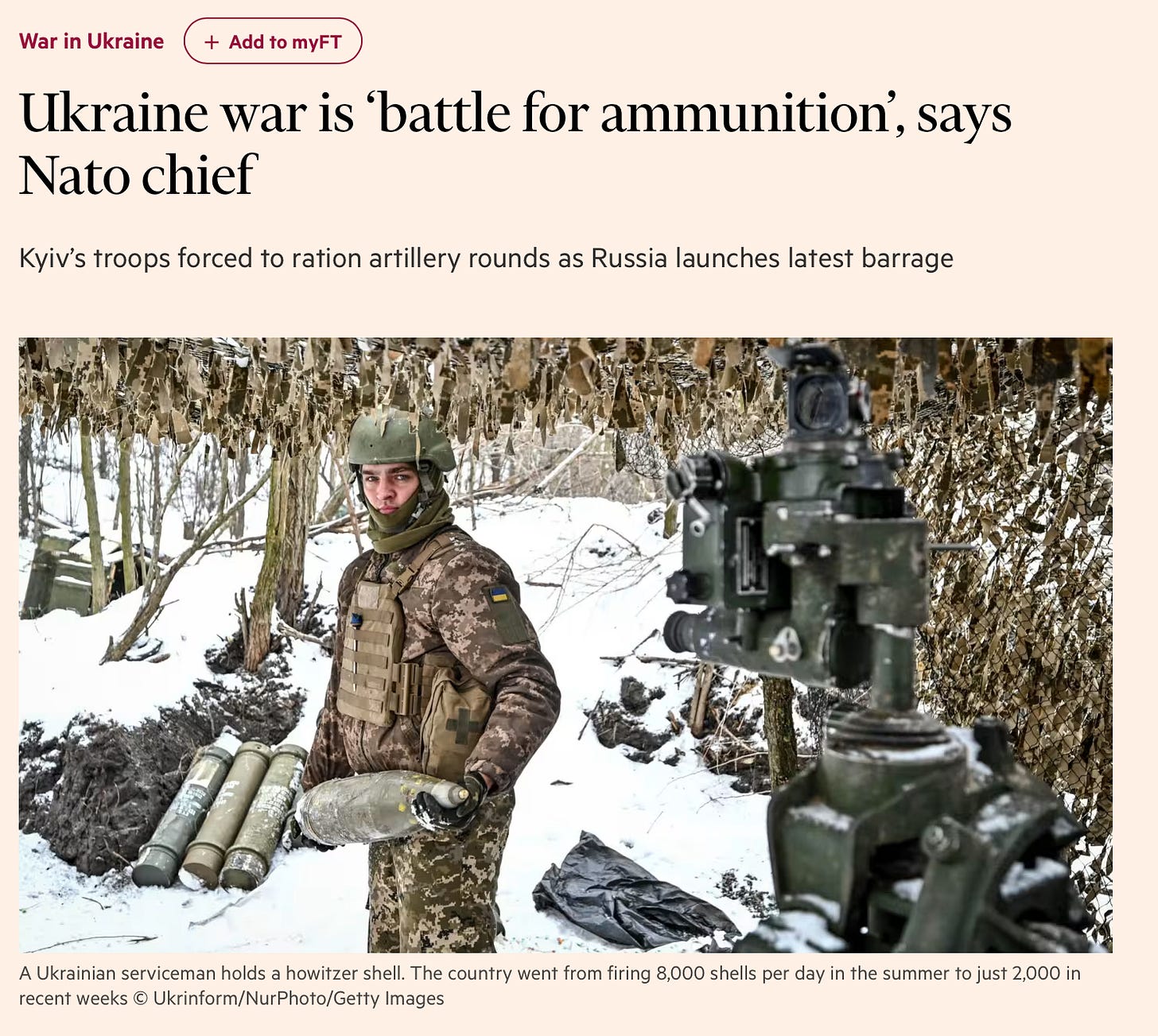NATO's Alarming Ammunition Crisis
The Financial Times, through the insights of Henry Foy, Roman Olearchyk, and Christopher Miller, brings to light NATO Secretary-General Jens Stoltenberg's concern over the dwindling ammunition in Ukraine. The alarming decrease in artillery shell usage from 8,000 to 2,000 per day signifies a critical shortage. Stoltenberg’s call for increased production is echoed in NATO’s €1.1 billion deal for more artillery rounds, aiming to sustain the Ukrainian forces and replenish NATO stocks.
NATO’s Billion-Dollar Ammunition Strategy
NATO’s response involves a significant financial commitment to counter the ammunition crisis. The $1.2-billion contract for 220,000 rounds of 155-millimeter ammunition aims to replenish NATO countries' arsenals and extend support to Ukraine. This strategic move, underscored by Stoltenberg, highlights the critical role of ammunition in modern warfare and the need for robust supply lines to support ongoing military operations.
The U.S. Financial Dilemma
The Pentagon's situation, as detailed by Lydia Patrick, marks a significant turn in the conflict. For the first time, the U.S. officially acknowledges its inability to provide further financial aid to Ukraine. This revelation, made during a meeting of 50 nations coordinating aid for Ukraine, highlights the U.S.’s reliance on its allies to bridge the funding gap, reflecting a broader challenge in sustaining long-term military support.
Germany’s Financial Constraints and EU’s Role
As reported by AFP, Germany's finance minister's statement underscores the growing financial burden on European nations. He emphasizes that Germany cannot single-handedly sustain Ukraine's defense and calls for fair burden-sharing within the EU. This stance reflects the broader European predicament, balancing immediate defense needs with long-term financial sustainability.
Rock’s take:
This combination of political (by far the most important factor) but also technical and financial challenges brings Western allies to a critical juncture. The situation could lead to two possible outcomes: either a Russian victory, signifying a significant Western defeat, or a push towards peace talks and appeasement. As per a leaked report by German Military Intelligence published by Bild last week, this could potentially lead to further aggression probably NATO member states that previously belonged to the Soviet Union or Warsaw Pact. If any of those are executed at least partially successful that means not only the end of NATO as such, but it means demolishing the security equilibrium of the world we live in.
What are Your thoughts? Share comment with me.
Consider supporting this daily wartime report







I’m a retired US army vet. 17 yrs in Europe. Berlin. 1960 to 1977 . Speak a number of European languages. Many friends in Eastern Europe. I am surprised and ashamed of my country for their present “political” position on support for Ukraine. Never in my wildest dreams would have imagined my country in the state it is now. Pitiful. The EU and NATO is no better. Big talk, little meaningful action. I’m ashamed.
I am ex-Australian military. There’s an old adage; “ If you don’t study history, you are destined to repeat it!”
Look at 1930’s Europe! It’s repeating, just different players!
Australia has 31 F/A18+++’s sitting in a warehouse waiting to be scraped!
I am ashamed of my piss-poor government, for not giving them to Ukraine! Pathetic!
If its the U.S. refusing to give Australia permission? Shame on both major U.S. political parties!
Shame on U.S. politicians for not supporting Ukraine fully. This will cost the U.S. dearly, when NATO gets involved, when Article 5 is enforced when East. Europe is attacked!
Shame on Trump for being no more than a weak appeaser!!!
Slava Ukraine, from the land of Oz.